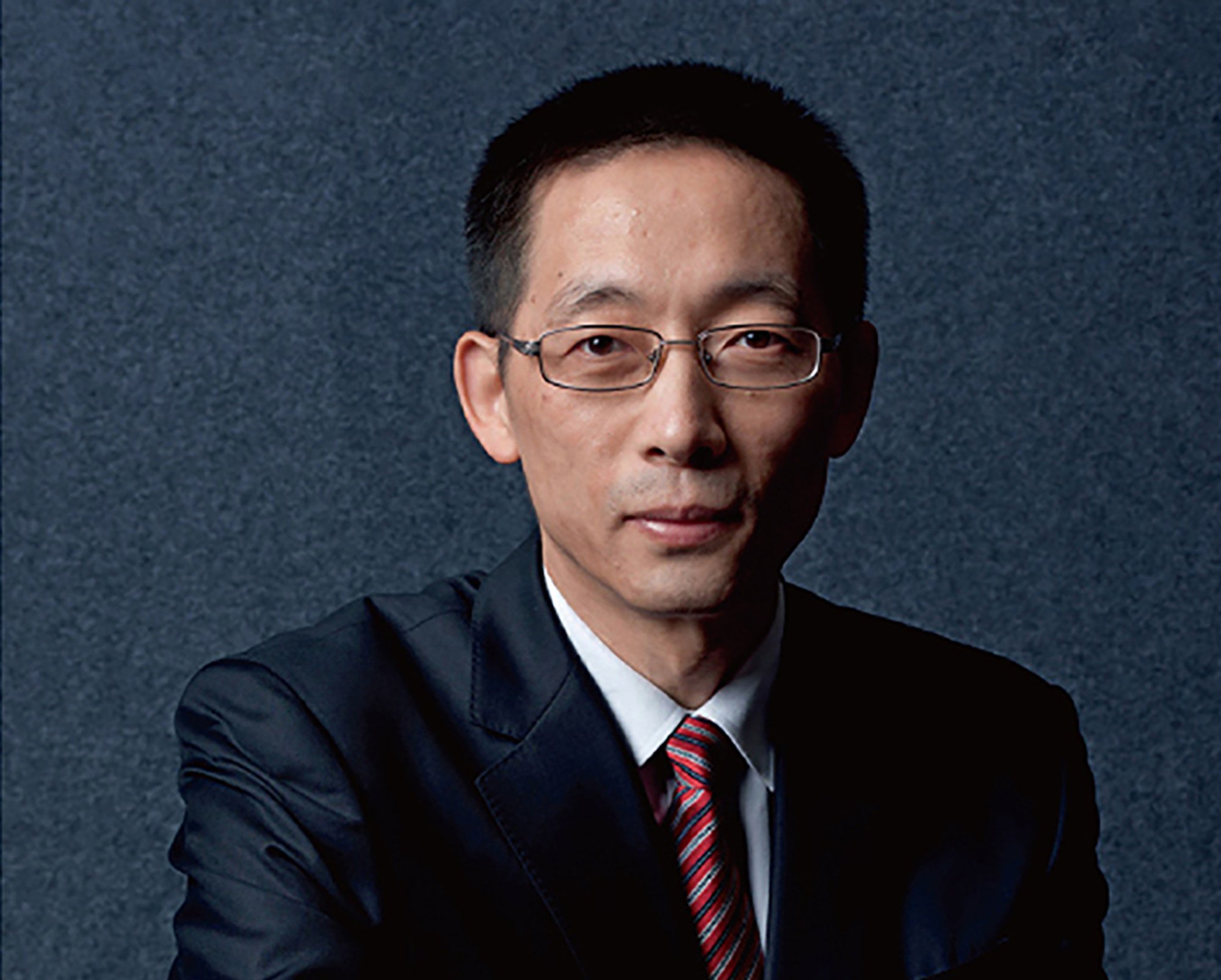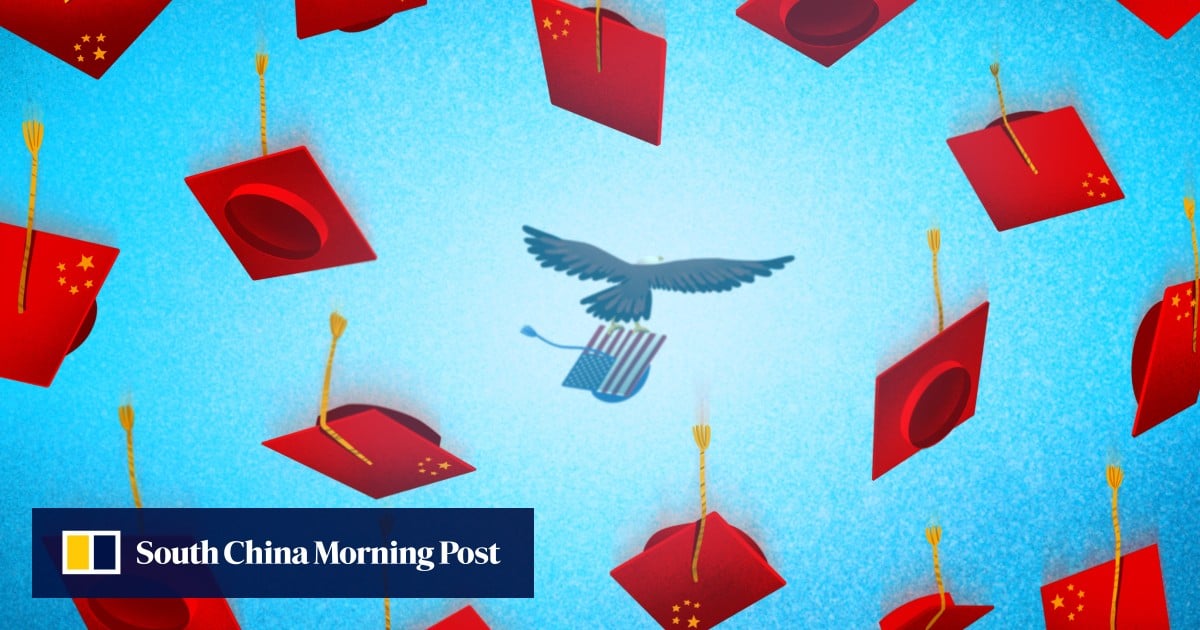He said that before 2019, nearly half the graduates from his department would opt to study abroad, mainly heading to the best-known institutions in the United States – such as its Ivy League universities – as well as Britain. However, that rate has been declining significantly.
What has happened at Tsinghua University is a reflection of a quiet, emerging trend: despite studying abroad remaining appealing, an increasing number of high academic achievers are ruling it out.
Since China’s reform and opening up in 1978 until the end of 2021, around 8 million Chinese students have studied abroad, according to the Ministry of Education. This is a huge number and their flow is strategically important for both sides.
Zhao Yiping, a distinguished research professor of physics at the University of Georgia in the US, said more than half of the newly recruited students in his department used to be of Chinese origin, but this year that number is just one or two. Candidates from developing countries such as Nepal and Bangladesh are filling the spots instead.
“We want to hire more Chinese students because generally, they have a more solid academic foundation,” Zhao said.
German university stops accepting state-funded Chinese researchers
German university stops accepting state-funded Chinese researchers
China’s zero-Covid policy, which lasted for around three years, directly affected this shift.
“The pandemic is a disruption, but it is not the main reason,” said Shen Wenqin, an associate professor from the school of education at Peking University, adding that the decline had been particularly pronounced in the last two years.
Shen has been observing this issue since 2016. He said that around five or six years ago, the smartest students who majored in subjects such as mathematics, physics and chemistry at China’s best universities saw overseas study as the optimal next step on their career ladder.
But it is a trend that has been fading. In 2020, Qiu Yong, then-president of Tsinghua University, pointed out that in the previous five years, the proportion of the institution’s graduates studying abroad had declined more each year.
“More and more graduates choose to stay in China to further their studies or go to the job market,” Qiu said.
Externally, worsening relations between the US and China have cast a shadow over some students’ American education dreams, leaving them putting off their study plans, mainly as a result of a tougher visa approval.

In mid-2022, the US issued around 45 per cent fewer visas to Chinese students compared with the same period in 2021, according to the US-based Chronicle of Higher Education.
However, researchers interviewed by the Post attached more importance to the fact that, unlike where China was at the start of the century, the nation is now becoming a major global powerhouse of science and technology.
Shen has conducted interviews with students from top mainland universities in recent years, and they listed the Western-trained teachers as a reason why they were now looking at continuing their studies or conducting research in China.
“If you have a scan at the résumés of faculty at such institutions, you will find that many younger generation scholars are armed with a background at the most prestigious schools like Stanford, MIT or Harvard, and therefore they have a worldly horizon and international collaboration network,” he said.
China’s envoy to US calls for ‘concrete, small steps’ in relations
China’s envoy to US calls for ‘concrete, small steps’ in relations
In the same vein, China has been upgrading its industrial structure to grow into a more technologically advanced economy and thus has created more hi-tech jobs for young professionals.
“One of the most important ways that American universities promote mutual understanding between countries – while also advancing US interests – is by educating students from around the world,” a Foreign Affairs article published last month said, adding that the ability of American universities to attract the world’s best talent was key to the country’s success.
But, what implications will it bring for China? Academics interviewed expressed a cautious but positive sentiment towards the change.
“China is not as reliant on the West in talent training as it was in the past,” Zhao said.
In Shen’s opinion, the shift is in fact a good thing for China.
“I think in the past we were experiencing a sort of talent drain as the best brains went abroad and a high proportion of them no longer came back, which was in return hurting China’s talent training system,” he said.
But if the rate continued to drop, Shen said there would be a reason to be worried, as one of the key contributions to China’s scientific development over the last few decades has come from sending young talent to developed countries and maintaining academic exchange with the world.
That said, studying in well-known international higher education institutions is still a tantalising dream for many Chinese families.
According to data from market research firm ICEF Monitor, in 2022, around 1.3 million international students held valid study visas in the United States, a 10 per cent increase compared to 2021. China remained the largest source country, with around 320,000 students heading to America.
A vaccine development scientist at a mainland university, who spoke on condition of anonymity, observed that some college students, especially those from less privileged backgrounds, were no longer as keen to pursue further education in the US, under the converging influences of the negative portrayal of the country by Chinese media, the hype about China’s technological prowess, and anti-Asian hate crimes in the US.
However China’s elite group, he said, was increasingly prioritising international education for their children. He said a close friend, a famous scientist who intended to send his child to a US university, had decided to bring that plan forward, opting to send them there for high school.
The vaccine expert said he could understand such a decision, as he has become disappointed with the fostering of talent in mainland universities.
“Many irrelevant political ideology courses are consuming a significant portion of students’ time, while major-related materials and knowledge imparted are outdated,” he said, adding that the intensifying restrictions on freedom of expression and exploration had hindered innovation.
He said that despite significant advancements in science and technology in China, there was a considerable gap when compared to some Western countries, citing the proliferation of Chinese biotech companies in recent years as an example.
“Many of them lack original technologies,” he said.



